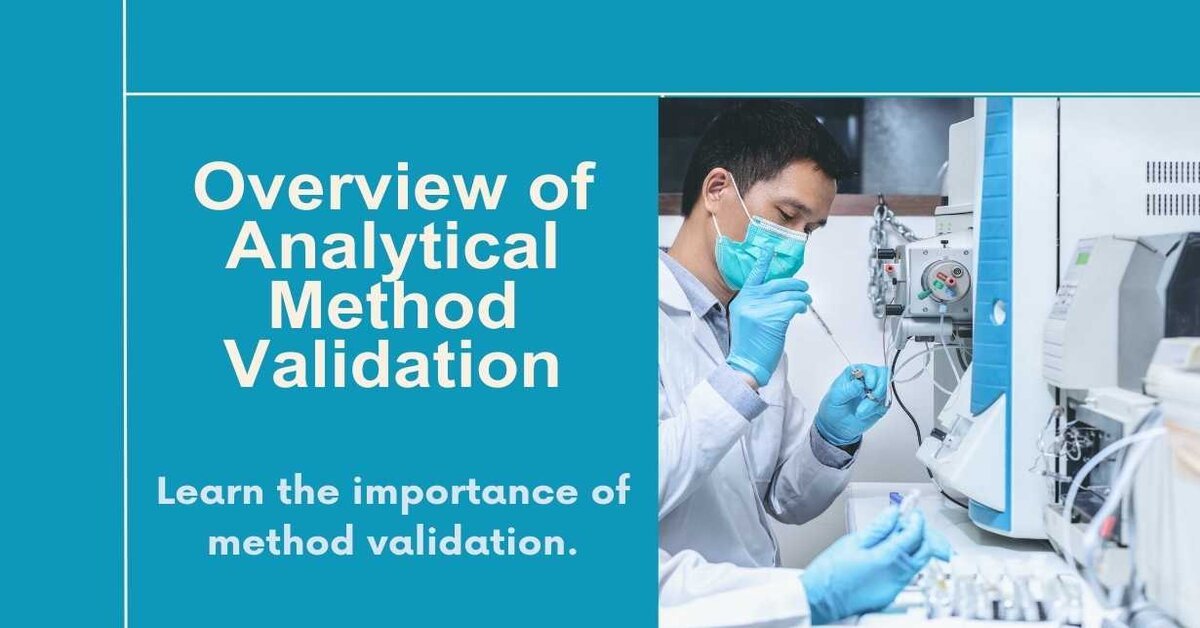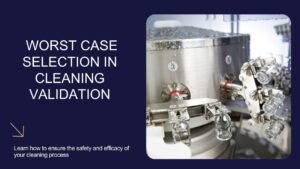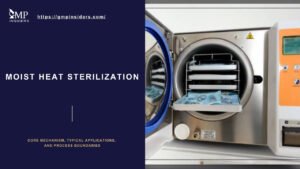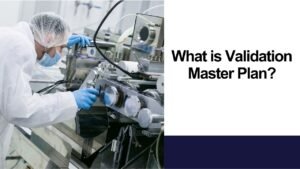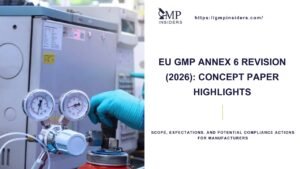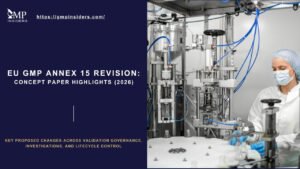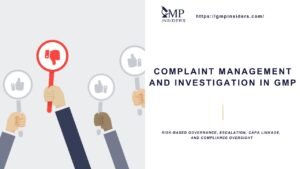Key Takeaways
- Analytical method validation is essential to produce meaningful data. It may be argued that without validation, data generated by a method has little or no value.
- To what extent one validation will take place depends on the changes and requirements of the particular method.
- It is not always essential to validate all available analytical performance characteristics for a certain method, but it is necessary to define which ones are required objectively.
- The process of validation should always be a systematically planned activity that is documented in a validation plan. This will ensure that all performance requirements are adequately covered, and testing is conducted in the most efficient way
- The amount of generated data during validation should be sufficient to provide an objective and scientifically sound decision on fitness-for-purpose.
What is Method Validation?
Method validation is the process of demonstrating that analytical procedures are suitable for their inteded use (“fit for purpose”) and they support the identity, strength, quality, purity, and potency of the testing sample. In other words, it can be said that validation provides adequate proof that the analytical technique achieves its goals by providing sufficiently accurate, specific, sensitive and precise results in order to conform to regulatory requirements.
Initial activities related to analytical method validation usually begin during method development stages, where certain performance characteristics are only estimated or approximately determined, in order to confirm whether method capabilities are in line with requirements. Once the method development phase is finished, formal validation studies take place.
Prior to every validation study, a well-constructed validation protocol shall be generated. The validation protocol should include detailed instructions about which tests will be performed at each stage, how many replications are required, what are the analytical requirements for each test, etc. Sometimes, more than one parameter can be examined from a single set of experiments, in which case the order of how tests are being performed can also be very important.
After all validation tests are completed and evaluated successfully, a confirmatory statement of the validation process is presented by a positive affirmation of fitness for purpose.
Analytical Method Validation Performance Characteristics
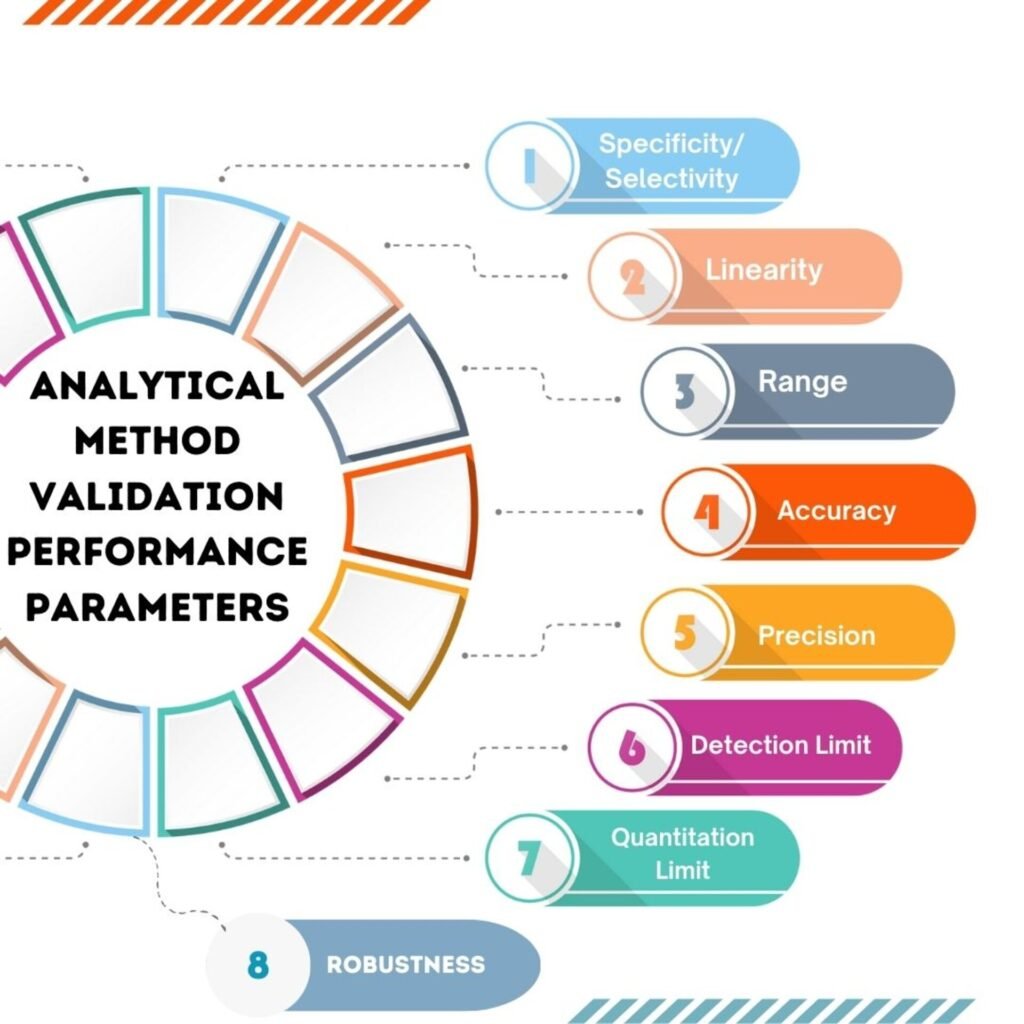
According to the currently effective version of the ICH guideline Q2(R1) “Validation of Analytical procedures: Text and Methodology”, these are the validation parameters that can be used for evaluation depending on the type of analytical method that is being validated:
- Specificity/Selectivity
- Linearity
- Range
- Accuracy
- Precision (Repeatability, Intermediate precision, Reproducibility)
- Detection Limit
- Quantitation Limit
- Robustness
This article is a general overview on the importance of Analytical method validation, covering many “Why-s”, “How-s” and “When-s”. We have dedicated a separate article that decomposes each of the Method Validation Performance Characteristics, including real scenario examples for a better understanding of their role.
How to Assess Fitness for Purpose?
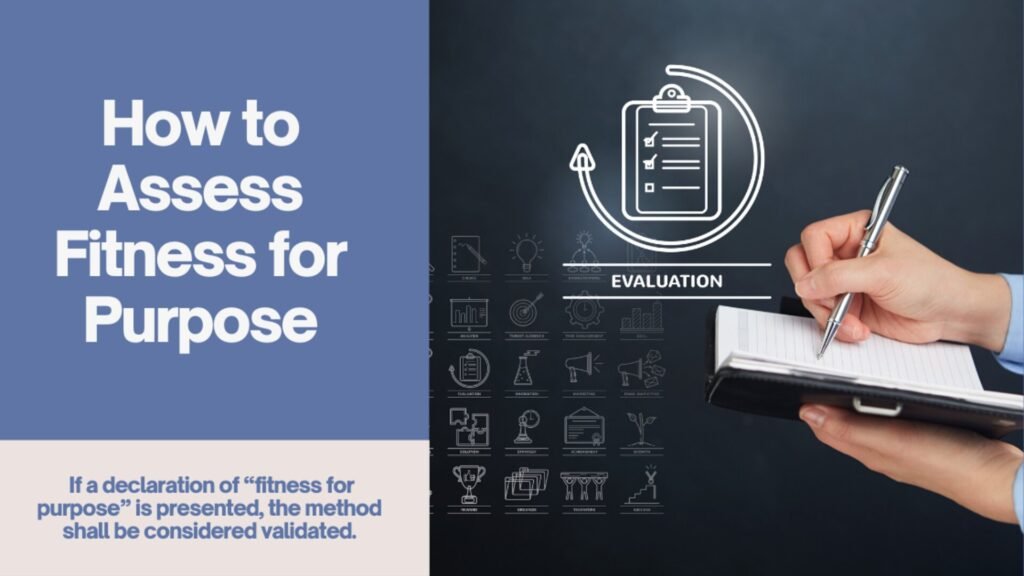
Once performance characteristics of the validation process have been acquired and evaluated, they shall be compared with the analytical requirements stated in the method validation plan. In the end, a judgment on whether the method’s performance is satisfactory is required. If a declaration of “fitness for purpose” is presented, the method shall be considered validated.
In situations where analytical requirements (target values) are not achieved during validation, further method development will be required, followed by a reassessment against target values.
Why is Method Validation Important?
Method validation is a regulatory requirement and is described in general and specific terms in the FDA’s (The United States Food and Drug Administration Agency) Code of Federal Regulations – CFR21 parts 210 and 211, as well as in the EMA’s Good Manufacturing Practices (GMP) Guide Annex 15. Pharmacopoeias (Ph. Eur, BP, USP), and ICH (International Council for Harmonisation of Technical Requirements for Pharmaceuticals for Human Use) guidelines also provide suggestions on how to perform method validation according to established performance characteristics. All suggestions provided by the above-mentioned subjects should not be considered absolute or direct instructions on how method validation should be performed.
In March 2022 ICH has issued a draft text – ICH Q2(R2) on Validation of Analytical Procedures that is currently under public consultation. The forthcoming revision of ICH Q2(R1) will encompass validation principles pertaining to the analytical utilization of spectroscopic or spectrometry data, such as NIR, Raman, NMR, or MS, which frequently necessitate the application of multivariate statistical analyses.
Analytical method validation is vital from an ethical and regulatory standpoint since many subjects rely on the laboratory’s competence to conduct an analysis that provides valid and comparable results. The laboratory is required to use appropriate procedures that apply all aspects of good science, including proper validation, before these procedures are put to use.
In a manufacturing environment, it is a manufacturer’s duty to ensure the quality, safety, and efficacy of the products before releasing them to the consumer.
One laboratory can extract valuable data about method performance during the validation process and detect all weak points in the overall performance of the method. The provided information helps in the design and implementation of suitable quality control procedures.
Aspects of Consideration When Performing Method Validation
When conducting analytical method validation, it is important to take into account the following key aspects:
- Before initiating a method validation, it is important to define its scope and application purpose.
- All analytes, their concentrations, and sample matrices should be well-defined in a validation protocol prior to the start of the validation process.
- Method development documentation should be available to aid assessment when creating the validation protocol.
- All available documents regarding the qualification of instruments, qualification and training of participating personnel, certificates of reference materials, etc., should be available for evaluation prior to and during the validation process.
- Performing pre-validation experiments gives initial information about the validation process and can be very beneficial in order to adjust method parameters and/or acceptance criteria if necessary.
- After performing full validation according to the validation protocol, all generated results should be included in the validation report.
Why Should Method Validation Be Performed?
Method validation is performed:
- To minimize analytical errors and errors that arise from the equipment
- To generate reliable and consistent results in accordance with method requirements
- To fulfill regulatory requirements
- To confirm the validity of generated results by providing objective evidence
When to Perform Method Validation?
Method validation should be performed:
- Before the introduction of a method in routine use
- Before inclusion in pharmacopoeias
- For suitability verification
- As part of the marketing authorization dossier
Every non-standard, newly developed method, or standard method that has been otherwise modified or used outside its intended scope must be validated as thoroughly as is required to fulfill the requirements of the application or area of application.
When modifications are made to an already validated method, the effect of such modifications must be identified. If it is determined that these changes impact the original validation, a new method validation shall be initiated.
SEE ALSO: Method Validation vs Method Verification
When to Consider Revalidating Your Method?
There are various situations in which it is essential to revalidate amethod:
- Changes in compendial methods (standardized protocols)
- Changes in product formulation or product production technology
- Changes in analytical procedures
- Implementation of new analytical equipment that could possibly affect the testing procedure and generated results
When revalidation is conducted, it is preferable to complete all validation steps. However, there are some exceptions that can be made (depending on the extent of applied modifications), but proper scientific justification shall be presented.
Questions to Be Addressed When Creating a Method Validation Plan
- What analytes should be detected?
- What are the expected concentration levels?
- What are the sample matrices?
- Are there any interfering substances to be expected? If yes, should they be detected and quantified?
- Are there any specific legislative or regulatory requirements?
- Should information be qualitative or quantitative?
- What are the required Detection and Quantitation Limits?
- What is the expected concentration range?
- What are the method’s expected accuracy and precision?
- How robust should the method be?
- What type of equipment should be used?
- Is the method intended to be used in a specific laboratory or should it be applicable in other laboratories?
- What skills do the anticipated users of the method have?
Conclusion
Analytical method validation is a critical process that ensures the suitability and reliability of analytical procedures for their intended use. Without validation, data generated by a method may lack value. The extent of validation depends on method changes and requirements, and it is essential to objectively define which analytical performance characteristics need validation.
Common sense and scientific justifications should guide the validation process, allowing for logical arrangements and reasonable exceptions. A systematically planned validation, documented in a validation protocol, ensures coverage of performance requirements and efficient testing. The importance of method validation is underscored by cGMP and regulatory requirements, ethical considerations, and the need for reliable, consistent results.
Analytical method validation is performed to minimize errors, fulfill regulatory requirements, and confirm the validity of results with objective evidence. Addressing pertinent questions when creating a method validation plan ensures a comprehensive and effective validation process.
Overall, analytical method validation is indispensable for maintaining testing integrity and producing meaningful, valid, and comparable results in various analytical applications.

